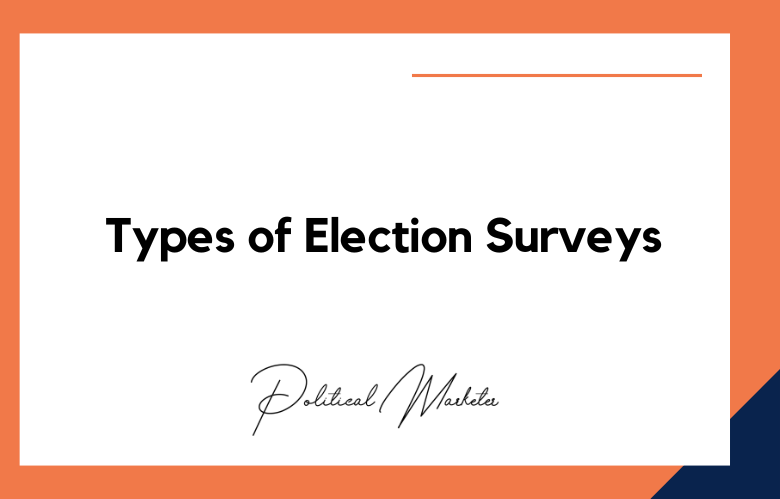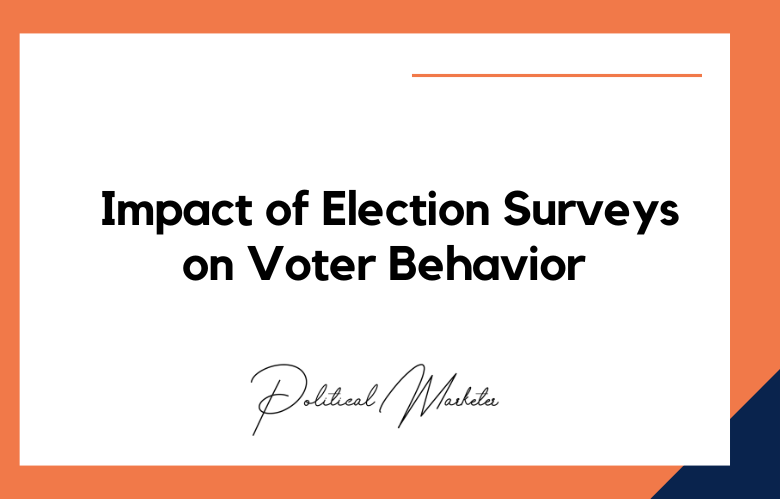In India, election campaigns have always been a battleground of ideas and ideologies between political parties and candidates. Over the years, how these campaigns are conducted has changed significantly with the shift toward narrative-based storytelling.
Instead of simply throwing facts and figures at the electorate, candidates now use stories to connect with voters and create an emotional bond.
This approach has significantly impacted how people perceive politics and elections and has helped shape the political landscape in India.
Using narrative-based storytelling in election campaigns is not a new concept in India. However, it has gained significant momentum in recent years, with political parties,
Marketing experts and media agencies recognize its effectiveness in reaching and resonating with diverse audiences. One of the critical reasons for this shift is the increasing influence of social media platforms.
What is Effective Political Communication?
Effective political communication is the ability to deliver clear, concise, and compelling messages to a target audience in a way that inspires action, shapes public opinion, and influences change.
It’s an essential skill for politicians, policymakers, and activists who want to make a lasting impact on their constituents and society as a whole.
Communicating effectively can sway election results, pass legislation, and build a powerful movement to achieve a common goal.
It’s not just about being a great orator or mastering the art of persuasion but also about understanding the psychology behind what motivates people to act.
The Power of Narrative-Based Storytelling in Election Campaigns in India.
Elections are an integral part of democracy, and India, the largest democracy in the world, is no stranger to them. Politicians try to outdo each other with their campaigns every election cycle, using various tools and techniques to sway the electorate.
However, in recent years, there has been a growing trend towards narrative-based storytelling in election campaigns in India as politicians realize the power of stories in influencing voter behavior.
We will explore the role of narrative-based campaigning in Indian politics and what makes it so effective.
In India, storytelling has long been a part of the cultural fabric, as it is deeply ingrained in the traditions and religions of the country. Politicians now realize that tapping into this rich storytelling culture can create personal connections with voters and effectively convey their message.
Crafting A Winning Election Campaign Through Narrative-Based Storytelling In India.
India is just months away from one of the most extensive democratic exercises in the world, the General Elections, whereby its 900 million voters will head to the polls to elect their representatives at the national level.
As India evolves with each passing year, the art of election campaigning has also undergone a paradigm shift with the advent of digital media.
This has increased the number of new voters and created new challenges for traditional campaign management strategies. A more innovative approach, narrative-based storytelling, has emerged in recent years.
We will delve into how narrative-based storytelling has become a prevalent method in Indian election campaigns and how it has transformed the ways of elections in India.
Using Emotion-Based Storytelling to Connect with the Voters.
One critical method of narrative-based storytelling during election campaigns is connecting with the voters.
Myths, legends, and folklore have always been integral to Indian storytelling, so it’s no surprise that most Indian political leaders have learned to use stories to evoke powerful emotions, which helps them connect with their voters.
Their stories reflect the main issues and concerns of the voters, thus painting an image of the politician as a true champion of their needs. Hence, it is essential to create an emotional connection with the audience; this is where storytelling comes into play.
The Importance of Narrative Structure and Persuasion in Elections.
Narrative-based storytelling needs a well-structured format to be effective. It should include a clear message, a storyline, and a character-centric approach.
The structure should be such that it could leverage cognition, appeal to emotion, and involve the audience at an intimate level. This makes the voter emotionally invested in the candidate’s journey.
The story should be woven around the candidate’s message, making it persuasive enough to appeal to the audience.
In addition, successful campaigns require a long-term strategy that builds and reinforces the narrative throughout the election period.
The Role of Social Media Platforms in Propagating Narratives.
Given the democratization of communication in Indian society, social media platforms have become a valuable tool in propagating election narratives.
These channels can be used in an exacting fashion to reach out to a broad audience. Any campaign that disregards the value of social media platforms today will be at a significant disadvantage.
The platform helps to propagate narratives and direct the conversation towards a particular agenda. By individualizing and propagating stories through social media, campaign managers can create media reaching out to millions and cost-effective publicity.
As a result, political campaigns have become more focused and research-driven to find the most effective strategies for influencing voter behavior.
Overcoming Challenges through Effective Political Communication.
Know Your Audience:
The first and most crucial step in overcoming challenges in political communication is to know your audience. The audience includes voters, journalists, supporters, opponents, and even international audiences in today’s globalized world.
The messaging for each of these groups is different, and it’s essential to tailor the messaging accordingly. The messaging and tone should be adjusted based on demographics, background, and geographic location.
Understanding and focusing on your audience will lead to effective political communication and less likelihood of misunderstandings and miscommunication.
Be Authentic:
In politics, it’s easy to be swayed by popular opinion and tailored messaging. However, in today’s age of transparency, authenticity is everything.
Being open and honest with your audience will increase trust and credibility, even when discussing sensitive or controversial topics. Authenticity also builds relationships and fosters a sense of unity with the audience, which can lead to more fruitful discussions and substantial outcomes.
Repetition:
Repetition is vital in any form of communication, but it’s even more critical in political communication. The messaging is influential, and repeating it amplifies its importance. When politicians repeat their messaging, it stays in the public’s minds, and they question what’s being said less.
Too often, political messaging is focused on short-term attention, so it’s essential to consistently repeat policies, ideas, and core messages. This also highlights the consistency of communication at every level, boosting confidence in the message.
Embrace Formats and Channels:
Effective communication also requires an understanding of different communication formats and channels. From email to social media and radio interviews, communication can be conveyed to various audiences through various channels.
Rather than sticking to traditional formats, politicians should embrace social media and modern communication methods to reach new audiences and build innovative messaging.
The message is tailored by embracing different communication formats and channels, enabling personalized, relevant, and effective communication.
Invest in Communication:
Political parties or politicians must invest in communication. Criticizing just for the sake of criticism is easy; however, investing in communication requires communicating both the party’s progress and setbacks.
Communication is a medium for telling the public what they want to hear and informing them of things they’re unsure of. By investing in communication, parties, and politicians expand their audience and broaden their communication channels.
Conclusion:
The shift towards narrative-based storytelling in India’s election campaigns has transformed the country’s political landscape.
Candidates are offering promises and sharing stories that connect with voters emotionally.
By doing so, they are bridging the gap between politicians and citizens and creating a more inclusive and engaged democracy.
As social media continues to grow in influence, we can expect narrative-based storytelling to play an even more significant role in election campaigns in the future.
Political parties who recognize this trend and adapt their campaigns accordingly will be the ones who succeed in convincing.
Call: +91 9848321284
Email: [email protected]
Narrative-Based Storytelling Election Campaigns In India: FAQs
What Is Narrative‑Based Storytelling In Political Campaigns?
It’s the use of structured stories—instead of just data—to emotionally connect with voters and shape perception.
Why Are Stories More Effective Than Facts Alone?
Stories resonate emotionally, making messages more memorable and persuasive compared to just presenting data.
Where Does Narrative Storytelling Have Roots In India?
Campaigns often tap into India’s rich tradition of myths, folklore, and cultural stories to build voter connection.
What Are The Key Elements Of A Political Narrative?
Effective stories include a protagonist, clear message, conflict or challenge, emotional hooks, and a resolution or vision.
How Do Campaigns Structure Their Narrative?
They weave the candidate’s personal journey, core message, and policy vision into a coherent, emotionally driven storyline.
How Does Narrative Build Emotional Connection With Voters?
By reflecting voter experiences and values through relatable stories that stir empathy and rapport.
What Role Does Social Media Play In Story Propagation?
Social platforms amplify narratives through shareable formats, hashtags, and targeted distribution to reach broad audiences.
Why Must Campaigns Invest In Communication?
Strong communication channels—online and offline—ensure narratives reach, engage, and influence target audiences.
How Should Campaigns Handle Setbacks Publicly?
By openly acknowledging setbacks within the campaign story, reinforcing resilience and authenticity.
What Makes A Long‑Term Narrative Strategy Effective?
Consistent reinforcement over time strengthens the storyline’s impact and voter recall throughout the campaign.
Can Folklore Enhance Political Messaging?
Yes—campaigns often integrate cultural myths or local stories to evoke shared heritage and emotional resonance.
How Do Myths And Legends Boost Narrative Appeal?
They trigger cultural memory and identity, making campaign messages feel native and familiar to voters.
How Do Campaigns Tailor Stories To Diverse Audiences?
By customizing narratives to reflect regional, demographic, or linguistic nuances, increasing relatability.
What Makes A Character‑Centric Campaign Story?
Centering the narrative on the candidate’s personal struggles or volunteer achievements humanizes their image.
How Do Campaigns Use Emotion‑Based Storytelling?
By highlighting real-life examples of challenges, hope, and transformation that align with campaign goals.
Why Is Persistence Important In Narrative Deployment?
Repeated narrative signals—through speeches, media, and social posts—reinforce the message and brand identity.
Can Cultural Contexts Enhance Storytelling?
Yes—aligning narratives with local cultural themes, festivals, or symbols deepens voter engagement and relevance.
How Do Visuals Improve Narrative Delivery?
Images, videos, and graphics evoke emotion and reinforce the story more vividly than text alone.
What Is The Role Of ‘Protagonist vs. Challenge’ Structure?
This structure captures attention—casting the candidate as hero overcoming obstacles to serve voters.
Why Is Narrative-Based Campaigning Increasingly Popular?
It engages modern, digital-savvy voters who seek emotional connection—and supports cost-effective online amplification.










